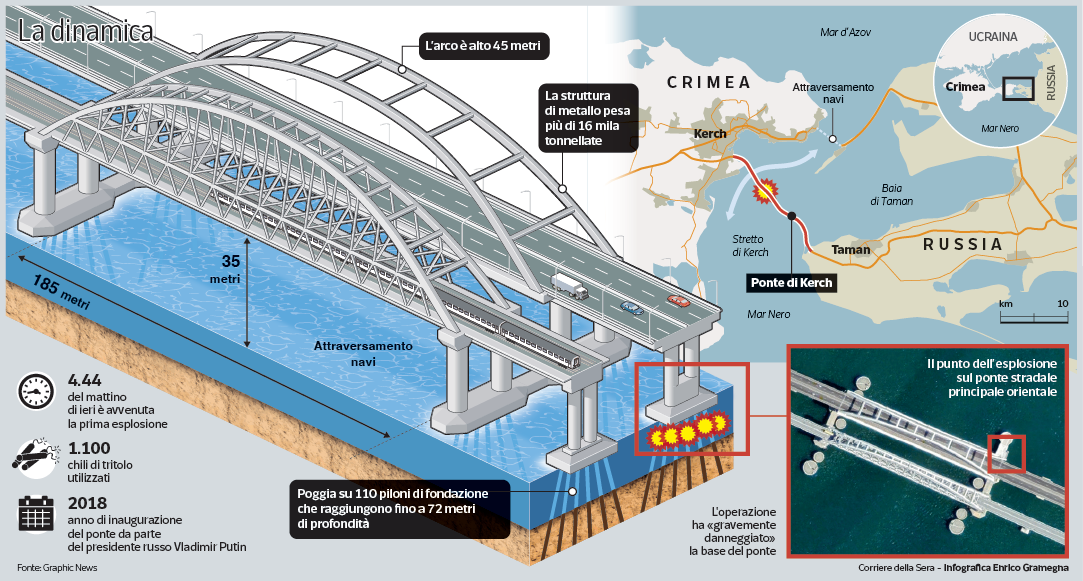Dazi, the « secret paper » of XI: 200 million Chinese « ghost » to be transformed into consumers

Faced with the threat represented by American duties, XI should relaunch internal consumption. An operation to which it is ideologically contrary to: but which could perform by reforming the « Hukou » system, the certificates of residence. Which up to now have created huge masses of little expensive labor, not very protected and very blackmailed
This entry was posted on the press review, the newsletter that the courier reserves for his subscribers: to receive it just subscribe to the point, and it can be done – for free for 30 days – here.
In the Review of Tuesday 15 April, Gianluca Mercuri explained well why, In the arm wrestling on the duties between the USA and Chinait could be the latter to have the best cards (In summary, because in the commercial war, exporting more than rivals, risks losing money, while the United States would lose goods, less easy to replace shortly).
The fact remains that, from the clash, the dragon could also come out delayed. Also for this XI Jinping On the one hand, he began to woo the neighbors – with the current trip to Vietnam, Cambodia and Malaysia – and the least close, such as Europe, presenting itself as the New guarantor of stability and freedom of commerce against Washington’s « unilateral bullying » (Here the article by Guido Santevecchi). On the other hand, together with the carrot he showed the stick of the restrictions on the rare earth exports (here the in -depth analysis by Paolo Ottolina).
Since, however, the Chinese economy has already never been completely taken from the outbreak of the real estate bubble and from the damage of politics Zero Covidthe duties war forces Beijing to think again also about how relaunch internal consumption. Far from easy operation. A little for « ideological » hostility to consumerismproven by Xi’s periodic « moralizing » campaigns against the rich and luxury (here An analysis by Danilo Taino). As he wrote On Foreign Affairs Zongyuan Zoe Liu, of the Council on Foreign Relations, «According to the party, consumption is an individualistic distraction that threatens to divert resources from the main economic strength of China: its industrial base. According to the party orthodoxy, China’s economic advantage derives from low consumption and high saving rateswhich generate the capital that the banking system controlled by the State can channel into industrial companies. This system also strengthens political stability incorporating the hierarchy of parties in every economic sector ». Then because, if the Chinese spare as much as to consume as if there was no tomorrow, it is also because they do not have a welfare system (especially in terms of pensions and public health) that makes them feel with the shoulders covered in the face of the uncertain of life. And build such a system A lot of time and a lot of money.
Giuliano Nociproreor of the Chinese territorial center of the Polytechnic of Milan, intervening in Focus Economia On Radio 24however, explained that at least a couple of things Beijing could do it. The first is to launch a new, robust stimulus package, that is Enter public money in the economyas a fact, for example, at the time of the financial crisis of 2008-09. The other is one reform of the « hukou » systemthe certificates of residence.
Thanks to it (or because of it, depending on the points of view), those who live and work in a big city but still have a residence in the countryside, It enjoys much less rights than real « citizens ». The system is very rigid – that is, changing status is very difficult – and has proved to be an excellent way to enjoy an « internal » immigration that provided little expensive labor, not very protected and very blackmailed at the time of two -digit economic growth.
Deepen with the podcast
Now, however, it could instead be useful increase the expense capacity of the « losers » of the system (according to the China Labor Bulletinbeyond 200 million workers cities do not have a « urban » hukou). As Trishala S wrote on site of the organization for Research on China and Asia (ORCA), «the economic implications of the system hukou go beyond the social inequalitysince the system hinders the mobility of workers, preventing an efficient allocation of human resources. In an ideal scenario, workers should be able to move freely where their skills are more requested, thus optimizing productivity and promoting economic growth. By limiting the ability of rural migrants to settle permanently in the cities, the Hukou system forces them to live in precarious conditions, often without access to essential services. If they were granted their residence in the city and access to the same services as the owners of Hukou Urbano, their economic production could increase significantly, for the benefit of the general economy». Also in terms of internal consumption.
On The Diplomatcommenting on the announcement, last August, of a five -year plan to reform the Hukou systemLizzi C. Lee, of the Center for China Analysis of the Asia Society Policy Institute, confirmed: «With the Chinese economy that has to face the double challenge of cooling of the real estate market and of the demographic changethe latter cycle of reform comes in a crucial moment. (…) Economists are generally convinced that to revitalize their economy, China must go from a growth guided by investments to a growth that emphasizes internal consumption and the development of the service sector. There Hukou system reform It is considered a fundamental lever in this transition, capable of freeing the mobility of work and of stimulate consumer spending fully integrating rural immigrants into urban economies ». And, now that it is (again) the war of the duties broke out, Lee itself reiterates, On Foreign Policy: «The only engine of sustainable growth is the Chinese family. A goal has been ventilated by Chinese analysts and strategists: Increase internal consumption by 30% by 2030 – about $ 3,000 billion in additional annual demand. This could, in theory, compensate for the loss of access to the US market and generate a new gravitational center for global trade. But to achieve this, Beijing must act urgently. This means expanding the programs of social assistanceaccelerate the Hukou reform To integrate migrant workers into cities, improve access tohealth care and topublic education and build amore redistributive fiscal architecture. These are ambitious but achievable goals, and they are the best bet of China for resilience ».
However, there is also another reason why the rigidity of the Hukou system, despite its contraindications, has been preserved for a long time: it is functional to the centralized control system of the Communist Party. « The Hukou system – explains Trishala S – has its roots in the planned economy implemented by the Chinese Communist Party in the 1950s. Initially introduced as a tool to allow the government to monitor and effectively regulate internal migration and to allocate resources more efficiently, reflects government efforts for maintain social and economic stability effectively managing the movements of the population and distributing the resources according to planned objectives».
But, as the Chinese did not start making more children when the party asked them (after decades of the only child’s policy), so they will not consume more if they are not put in the conditions to be able to do it. To this, point, therefore, also in the corridors of the power of Beijing one reform of the residence system, to create tens of millions of potential « new » consumersmight appear inevitable and urgent.
The alternative of invade the foreign markets with the goods no longer absorbed by the enormous US market It is, according to Noci – which in the past has repeatedly denounced this risk – not very practicable for Beijing at a time when China wants to paint as the great stabilizer of global trade. The goal of attracting countries in their orbit – including Europe – obviously remains. But in the short term it will probably be pursued in less detached ways.
Needless to say, China also has a lot of work on the relationships often of bad neighborhood with many countries: Japan, South Korea, Philippines and India, to appoint only some. But, as has repeatedly repeated for the European Union, even for XI, the duties crisis can prove to be, on many fronts, an opportunity to be exploited.







